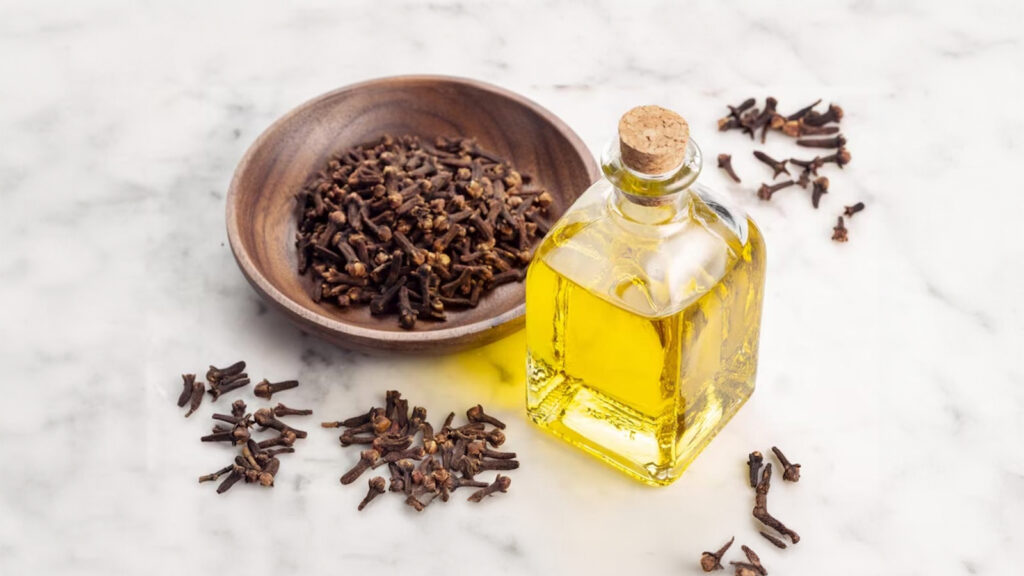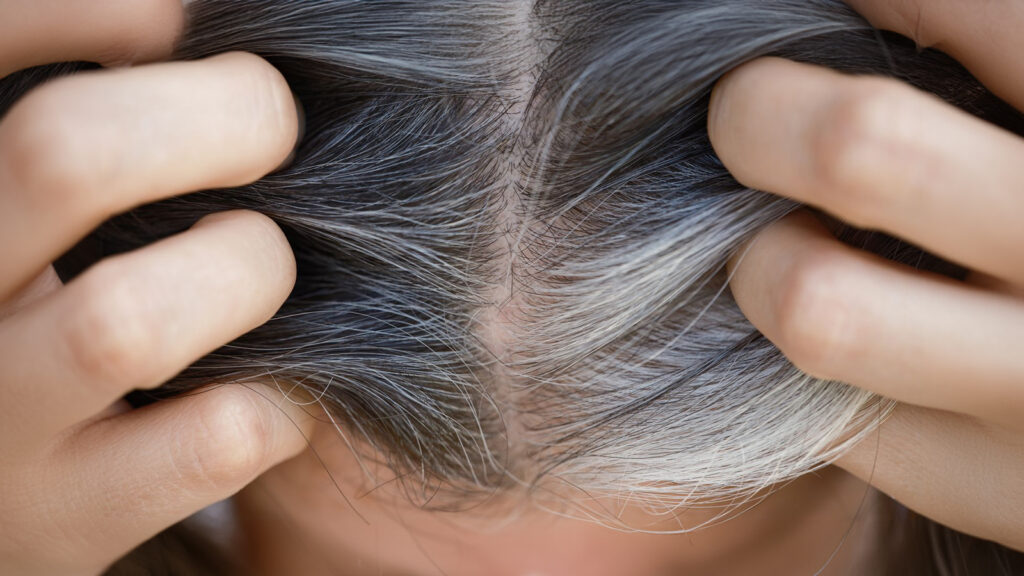Beauty Blog
Is Clove Oil for Hair? Discover the Truth
Are you struggling with hair shedding, dullness, or premature graying? Curious about natural remedies that could transform your hair health? “Is clove oil good for hair?” you might ask.
Ballyhoo Media invites you to learn how this ancient remedy, rich in antioxidants and essential nutrients, can address your hair care woes and boost your scalp health. Read on to explore the incredible benefits of clove oil for hair growth and vitality.
Is Clove Oil Good For Hair?
Cloves (Syzygium aromaticum) have a rich history in traditional Chinese medicine and Ayurveda, the ancient medical system of India. Ancient civilizations, including the Greeks and Romans, valued cloves for their ability to stimulate blood circulation, which promotes healthier hair growth.
Over time, the use of clove in hair care spread worldwide. People are now using clove-infused oils and treatments to combat dandruff, strengthen hair, and enhance its natural shine.
Today, clove oil remains a popular natural remedy in hair care routines for its proven benefits in promoting scalp and hair health.

6 Uses Of Clove Oil To Help Grow Hair
Now you know that clove oil is certainly effective. Let’s learn 6 benefits of clove oil for hair.
Diminishes Hair Shedding
Excessive hair fall may be due to weak hair follicles, harsh climatic conditions, or scalp disorders. It might also be a symptom of a serious health issue. If not treated early, hair fall can lead to hair loss, balding, thinning, and a receding hairline.
Applying a small amount of clove oil on your scalp can cover bald spots and strengthen your hair shaft, reducing unnecessary hair fall. This can add volume to your tresses, making them appear lustrous and gorgeous.

Prevents Early Graying
The appearance of gray hair can be a saddening, often starting in the mid-thirties. However, premature graying is increasingly common among people in their late twenties. This is caused by health disorders, hormonal issues, or unhealthy lifestyle practices like smoking and alcohol consumption.
Clove oil can improve the production of the pigment responsible for your natural hair color. The antioxidants in clove oil fight oxidative stress, which leads to premature graying. To use clove oil for renewing your hair color, combine 3 tablespoons of eucalyptus oil with a teaspoon of clove oil and massage your scalp and hair with this blend twice a week.

Boosts Hair Luster
If your hair looks or feels dry and lackluster, with curls losing texture and appearing dehydrated, lifeless, and brittle, it indicates your hair needs care. Clove oil offers a deep conditioning effect to rough hair strands, adding shine to dull tresses. It reduces hair damage, frizz, and split ends.
Treating your hair regularly with clove oil provides fatty acids and proteins, resulting in smooth, shiny, and strong hair. For best results, massage a blend of warm coconut oil and clove oil into your scalp and hair before bed. Rinse off the next morning with lukewarm water and shampoo, following this remedy once a week for super shiny hair.

Stimulates Hair Growth
If your hair refuses to show healthy growth, instead of switching shampoos or booking hair spa appointments, try clove oil. It acts as a natural remedy to promote hair growth due to its vital vitamins and minerals.
Massaging diluted clove oil into your scalp boosts blood circulation, ensuring more nutrients and oxygen reach your scalp and hair follicles.

Nurtures Scalp’s Well-being
Clove oil acts as a natural cleansing agent, feeding your scalp with organic proteins. It soothes itchy, irritated scalps by improving blood flow and hydration. Clove oil’s strong antimicrobial, antifungal, and antiseptic properties heal and prevent scalp disorders. These disorders include seborrheic dermatitis, scarring hair loss, and scalp pruritus.
Application of clove oil detoxifies the scalp, removing grease, dirt, and impurities. You will also notice a refreshing aroma to your tresses. This results in a healthier scalp, less hair breakage, and the regeneration of new hair.

Banishes Dandruff
Dandruff, a chronic scalp disorder, causes an itchy sensation and flakes of skin on your shoulders and clothes, affecting confidence and self-esteem. Many anti-dandruff shampoos offer temporary relief with side effects.
Clove oil, with its antiseptic, anti-inflammatory, and antimicrobial properties, can naturally get rid of dandruff and soothe dry, irritated scalps. To treat dandruff, add around 10 to 12 drops of clove oil to 8 ounces of your regular shampoo and wash your hair with it.

Using Clove Oil For Encouraging Hair Growth
Research on cloves’ effects on hair growth focuses on the beneficial compounds in cloves and their effects on scalp and hair health. Popular methods for applying cloves for hair growth include clove-infused oil, clove water rinse, and DIY clove hair masks. Below is how to make clove oil for hair growth.
Clove-infused oil is a mixture of cloves and a carrier oil, such as coconut or jojoba oil. Massaging clove oil onto the scalp increases blood flow to the hair follicles, stimulating hair growth and enhancing hair thickness.
Recipe for Clove-Infused Oil:
- Crush 1/2 teaspoon of whole cloves with a mortar and pestle.
- Add the crushed cloves to 4 ounces (1/2 cup) of carrier oil into a jar. You can choose to mix with coconut, jojoba, or olive oil, whichever suits your taste.
- Let the jar rest for a week.
- Strain the solids. Then pour the clove oil into another clear bottle or jar.
- When ready, gently massage the oil onto your scalp with your fingertips. Leave it on for approximately 20 minutes before shampooing.
Potential Side Effects Of Clove Oil
While all the benefits of clove oil for hair, don’t forget to use it cautiously and discontinue use if you develop adverse reactions. Common side effects you might need to be aware of include:
- Scalp Irritation: People with sensitive skin or those using undiluted clove oil may experience redness, itching, burning, or stinging sensations.
- Allergic reaction: Some uders may develop hives, skin blistering, redness, itchiness, and burning.
- Eye irritation: Avoid letting clove oil in contact with your eyes to avoid irritation.
Notes:
- Patch Test: Always perform a patch test before applying cloves to your hair or scalp. Apply a small amount of clove oil to the inside of your elbow or underside of your arm. Leave it on for 10 to 20 minutes and wait seven to 10 days to check for signs of irritation (e.g., redness, rash, itchiness).
- Eye Contact: Avoid contact with clove oil and water with your eyes.
Can Clove Oil Be Ingested?
While clove oil can offer health benefits when used internally, it’s important to be aware of the potential risks.
Potential Risks:
- Nausea and Vomiting: Overconsumption of clove oil can lead to digestive issues.
- Liver Damage: High doses of clove oil can be toxic to the liver.
- Medication Interactions: Clove oil can interact with medications, particularly blood thinners and anticoagulants, potentially causing harmful effects.
Special Precautions:
- Children: Even small amounts of clove oil can cause severe side effects in children, such as seizures, liver damage, and fluid imbalances. Keep clove oil out of reach of children.
- Pregnancy and Breastfeeding: Clove oil should not be used during pregnancy or while breastfeeding due to potential
Conclusion
If someone asks you, “Is clove oil good for hair?”, you can now confidently answer that you are using this remedy to aid your hair growth and luster.
Tell them your knowledge of clove oil benefits for hair, as clove oil also reduces hair shedding and greying. However, it’s important to use clove oil cautiously and perform a patch test to avoid potential side effects.
Share your own experiences with clove oil for hair care and let us know how it has worked for you. For more insightful tips and advice, check out more blogs from Ballyhoo Media.
